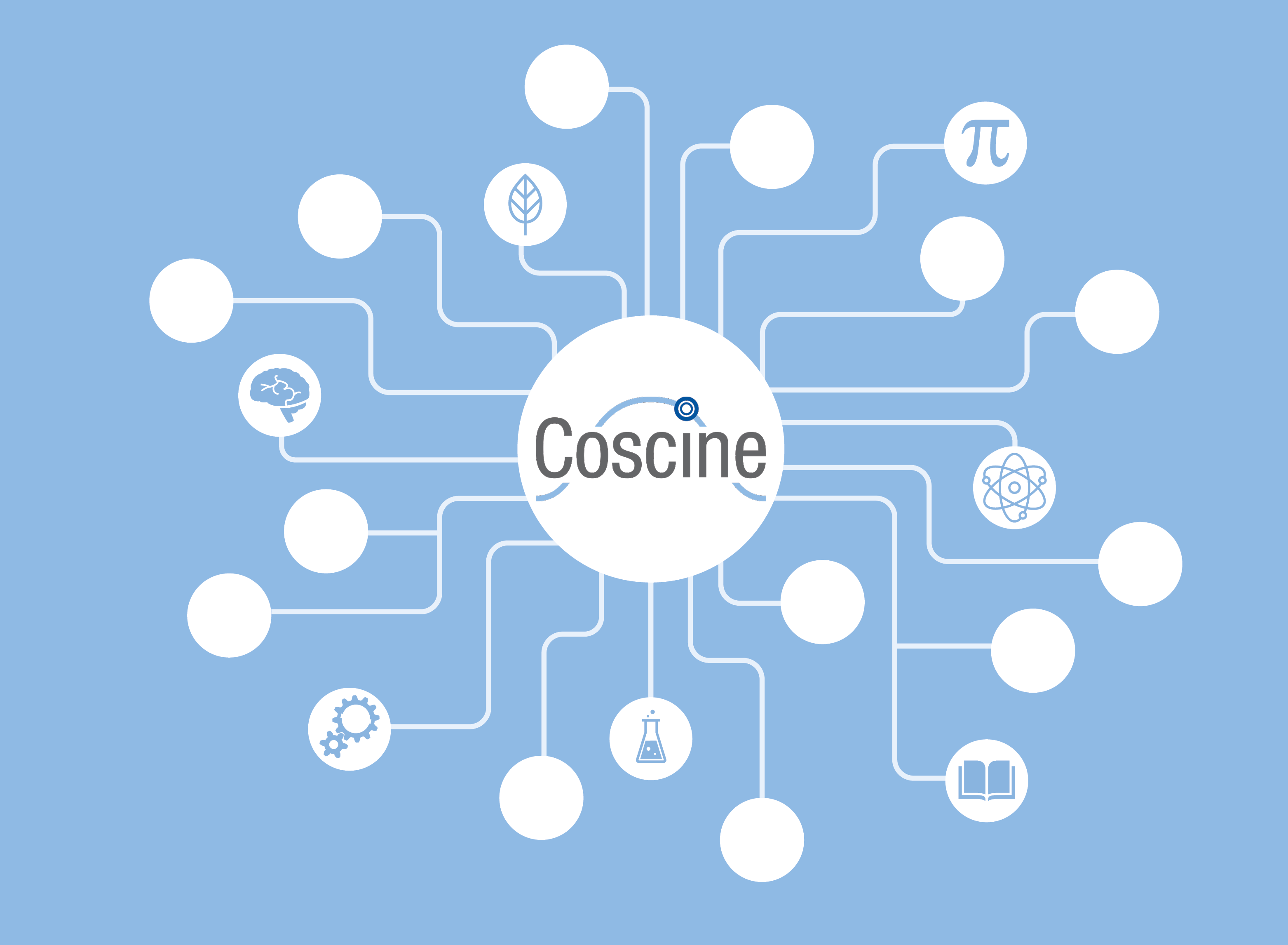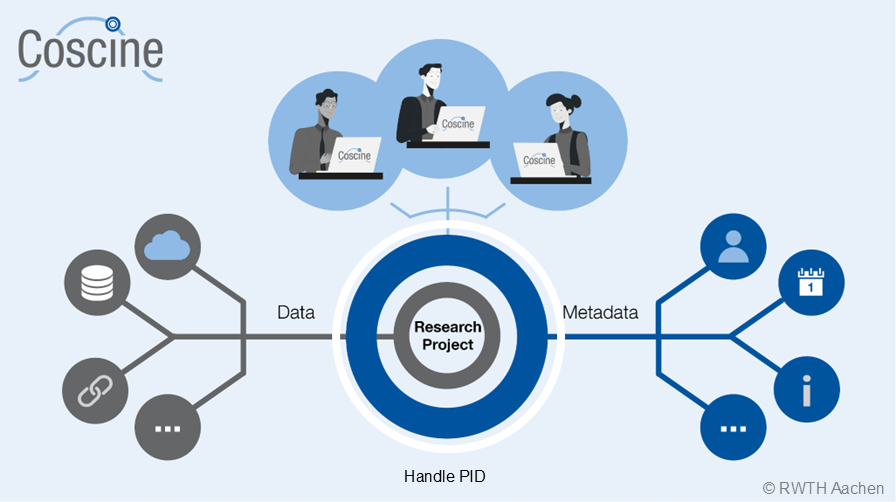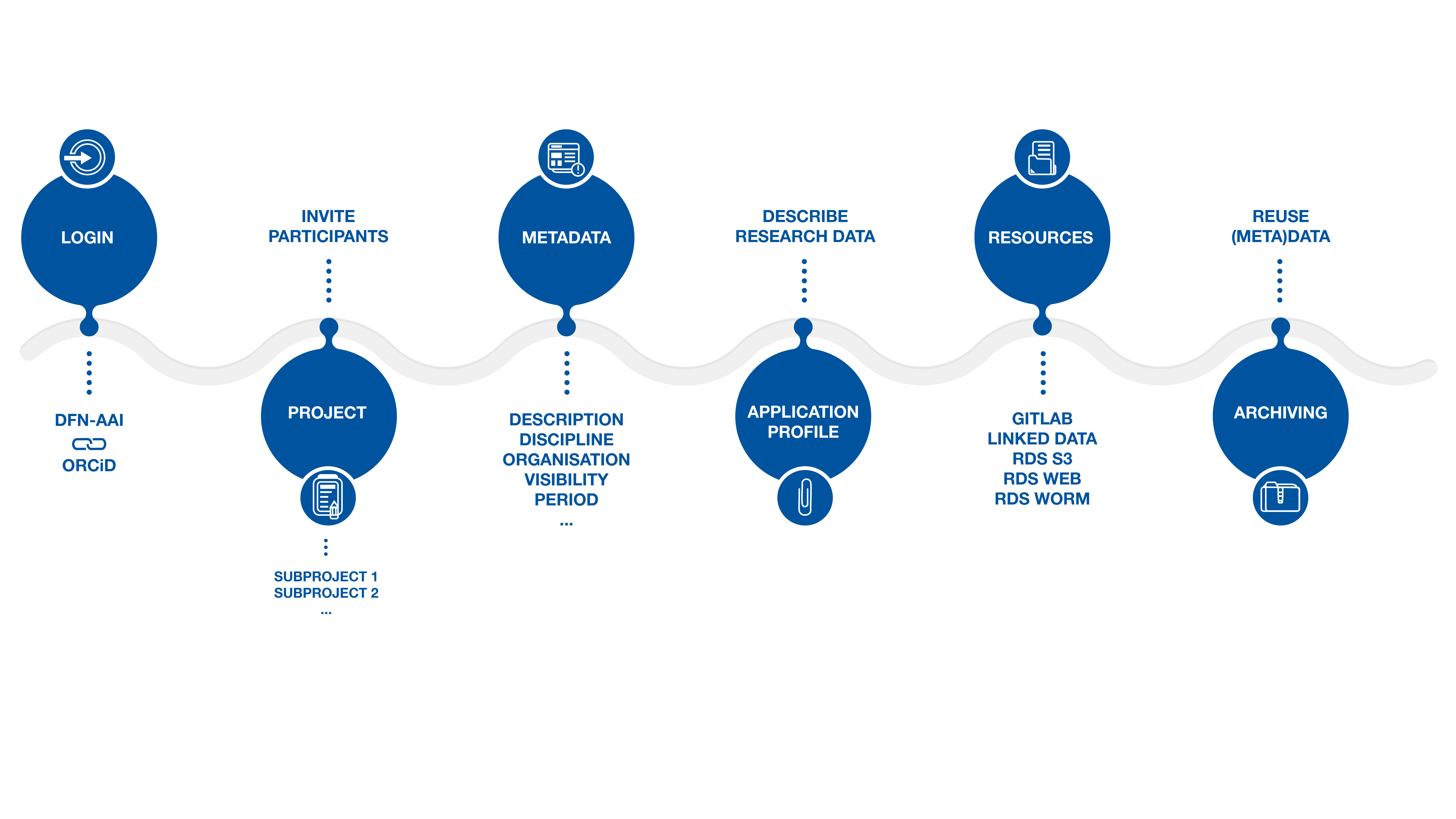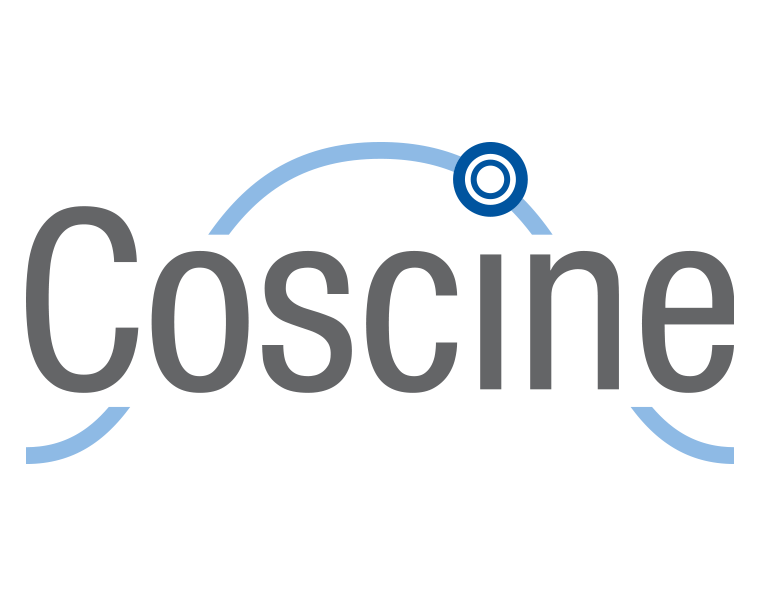Detailed description of the service
The generic research data platform Coscine has been developed as open source software at RWTH Aachen University and is used for the management of research (meta)data as well as for the allocation and provisioning of storage resources for research data.

Coscine is developed according to the FAIR principles and implements interfaces for the so-called FAIR Digital Objects. For researchers, Coscine offers access to all research data of a research project, the linking with project or subject-specific metadata and the management of project members. Thanks to its low-threshold access management, Coscine can be used as a collaboration platform across university boundaries. The findings and requirements from national (NFDI, NHR) and international projects (EOSC, gaia-x, RDA) are also incorporated into the development of Coscine and enable both subject-specific and interdisciplinary use of the platform.

Web-Based User Interface (UI)
For nationwide cooperation, Coscine allows the invitation of national and international researchers to a research project. Users can log in via the NFDI4ING Community AAI or as international researchers using the ORCiD.
In Coscine, research data and metadata can be archived for 10 years after the end of a project.
Since Coscine is a generic platform for the active project phase, it does not offer curation and publication of research data via a DOI. However, Coscine supports researchers in their publication by offering a function to share the generated metadata easily with publication services. Coscine is also not offering long term archiving beyond 10 years.
Research Data Storage
Through the integration of various services described as resources, researchers can view and manage all project data in one place via the Coscine web interface and/or the Coscine API. Coscine provides for NFDI4ING projects access to storage space on the research data storage (RDS) and from the end of 2024 on the DataStorage.nrw. The storage can be accessed via the web interface, API or S3 protocols directly. Moreover, resources from GitLab as well as Linked Data are integrated. Based on customer requests or market changes, additional resources can continuously be added or replaced.
For each project and resource, Coscine assigns a handle PID to allow referencing research data outside of Coscine.
Metadata Management UI and API
Metadata is automatically linked to research data at project, resource and data level. On data level, metadata can be added using flexibly definable schemas that are based on RDF, OWL, and SHACL standards, ensuring its interoperability. Individual metadata profiles can be created and added to Coscine by using the Metadata Profile Creator. Centralized management of metadata ensures that searching across all available metadata becomes possible.

Terms of use & restrictions
Is registration required? Yes
Are there any costs? No
Who may use the service, how and for what? https://about.coscine.de/termsofuse/
Contact
Dr. Ilona Lang, servicedesk@rwth-aachen.de
References
publications that reference (or report on using) the service
Yazdi, M.A., Politze, M., Müller, M. (2024). A Novel Approach to Outlining Research Data Management Life Cycle: A Case Study. In: Li, S. (eds) Information Management. ICIM 2024. Communications in Computer and Information Science, vol 2102. Springer, Cham. https://doi.org/10.1007/978-3-031-64359-0_4
Lang, I., Nellesen, M. & Politze, M., (2024) “RDM Platform Coscine – FAIR play integrated right from the start”, ing.grid 1(2). doi: https://doi.org/10.48694/inggrid.3952
Politze, M., Lang, I., & Jansen, K. (2023). Coscine.nrw Landesweite Basisversorgung zur Verwaltung von Forschungsdaten im Open Source Modell. Proceedings of the Conference on Research Data Infrastructure , 1. https://doi.org/10.52825/cordi.v1i.235
Politze, M., Shakeel, Y., Hunke, S., Ost, P., Aversa, R., Heinrichs, B., & Lang, I. (2023). Long Term Interoperability of Distributed Research Data Infrastructures. Proceedings of the Conference on Research Data Infrastructure , 1. https://doi.org/10.52825/cordi.v1i.348
Yazdi, M.A., Politze, M., Heinrichs, B.: Research data reusability with content-based recommender system. In: Conte, D., Fred, A., Gusikhin, O., Sansone, C. (eds.) DeLTA 2023. CCIS, vol. 1875. Springer, Cham (2023). https://doi.org/10.1007/978-3-031-39059-3_10
Heinrichs, B., Politze, M., Yazdi, M.A.: Evaluation of architectures for FAIR data management in a research data management use case. In: Proceedings of the 11th International Conference on Data Science, Technology and Applications (DATA). SciTePress (2022). https://doi.org/10.5220/0011302700003269. https://publications.rwth-aachen.de/record/853932
#WhyNFDI
Why Coscine?
To exchange FAIR data with cooperation partners all over the world.
Because Big Data needs Big and FAIR Storage Environments
For FAIRness for every Bit(e) of research data (-> not just for published data)
Because research is a team sport (-> Cooperation)
Because researchers need time for research instead of searching for data (-> PIDs, search function)
Because the value of data ends not with a project (-> 10 years archiving)
Because no metadata is not an option (-> Coscine enforces at least two layers of metadata)
Miscellaneous
Links to instructions for use/guides
Webpage (Events, News, About ect.) https://about.coscine.de/
Documentation https://docs.coscine.de/de/
Development https://git.rwth-aachen.de/coscine
Mailinglist: https://lists.rwth-aachen.de/postorius/lists/coscine.lists.rwth-aachen.de/
